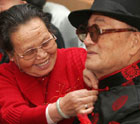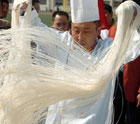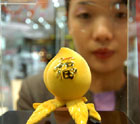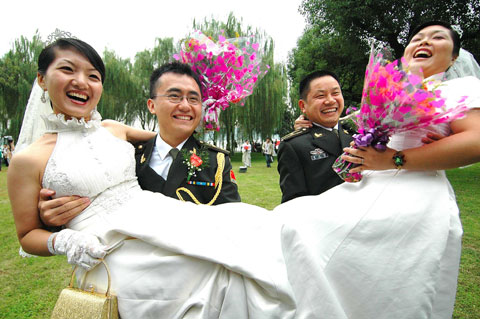BEIJING -- Mounting the hammer-and-sickle flag on his luxury car's control panel, Liu Sirong, a wealthy businessman in south China's Guangdong Province, wishes the red symbol of the Communist Party of China (CPC) would bless him for the future.
Starting from a producer of cheap underwear, Liu reached his personal height five years ago when he was elected delegate to the CPC's national congress, a twice-a-decade event when the Party would set its governing agenda.
Liu was among the echelon of private business people who were entitled by the Party Constitution amendments to join the CPC. And they would also have chance to occupy seats to the CPC national congress, which usually groups about 2,000 delegates.
Before amending the Party Constitution at the 16th national congress in 2002, the CPC only allowed workers, peasants, service people and intellectuals, who were among the proletarian class, to become its members.
More than 1,500 private entrepreneurs joined the CPC last year, taking up 14.4 percent of the 10,773 members from new social strata, according to official statistics.
While sitting the CPC national congress, Liu said, "I'm so proud to introduce myself to other delegates as a private entrepreneur."
The change of Liu's political standing was accompanied by the success of his business. He tried to bring his Chaozhou-based Gold Tide Group, which manufactures garments, to a local strong in 2006, when its revenue reached 419 million yuan (US$55.9 million), a significant growth from those of 170 million yuan in 2002.
The 50-year-old Liu said in an interview with Xinhua, "We would have more room to flex our muscles if we are on the equal political footing with companies financed by the state."











